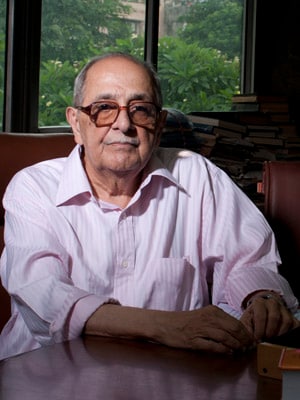
Is the Indian Judiciary On A Collision Course With Indian Media?
India's Chief Justice S H Kapadia peeved at the increasing trend of trial by media and frequent leaks of confidential information to the media
In a move that may lead to a lot of debate in the days to come and bring India’s media and Judiciary in direct conflict, India’s Chief Justice S H Kapadia today said that he is going to set up a constitutional bench to decide the extent to which media is allowed to report in sub-judice matters.
Kapadia was peeved at the increasing trend of trial by media and frequent leaks of confidential information to the media. Kapadia made the remark today, almost out of the blue, while in he was in court to decide on a case between State of Kerala Vs Messers Mar Appraem Kuri. (CA 6660/2005)
The latest provocation for Kapadia is the leak of Sahara’s confidential documents from the market regulator, SEBI counsel’s office. In response, Sahara’s counsel Fali Nariman had reportedly complained to Kapadia about the disclosure of Sahara’s list of properties, confidential information, which was leaked to the media.
According to a person present in the court today, Kapadia referred to Nariman’s letter and urged senior Supreme Court Advocate, K K Venugopal, who was also present in court, to assist the Supreme Court in the process as well as apprise the Attorney General, Ghulam Vahanvati of this development.
Another advocate present in the court confirmed that Kapadia’s move is directed towards reining in media, which is increasingly seen to be conducting trials in newsroom chat shows.
“Even if a person is guilty, he deserves the right to defend himself. But the media often tarnishes the reputation of the accused even before he is convicted. More importantly, even in cases where someone is let off by the judiciary, media’s reports have already pronounced him guilty and spoilt his reputation,” he said.
“The Contempt of Courts Act provisions demand that nobody reports on sub judice matters –not even the media,” he added.
It is interesting to note the timing of Kapadia’s decision as it comes close on heels of various media reports, which questioned Kapadia’s involvement in cases involving Vodafone and Tata Group. It was alleged in two different PILs that Kapadia’s son and son-in-law were involved with Vodafone and Tata Group respectively. Both the PILs were set aside by the Supreme Court.
The constitutional bench, as and when it is set up, could finally lay down the guidelines for the media which reporting on matters, which are sub judice. It is expected to be a keen tussle about how far can the media go, acting under its right to report, a derived right under article 19 of the constitution without interfering with the ‘administration of justice.’
A constitutional bench is set up to adjudicate on matters of constitutional importance and generally comprises 5 or more supreme court judges





